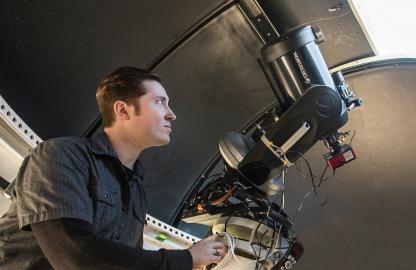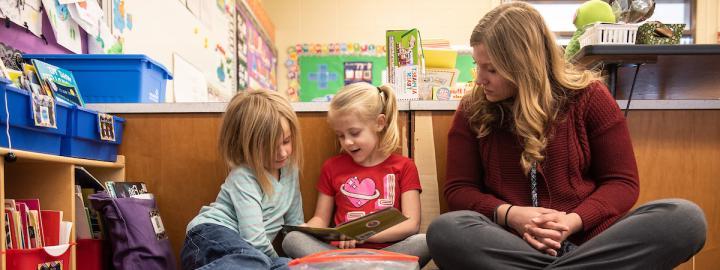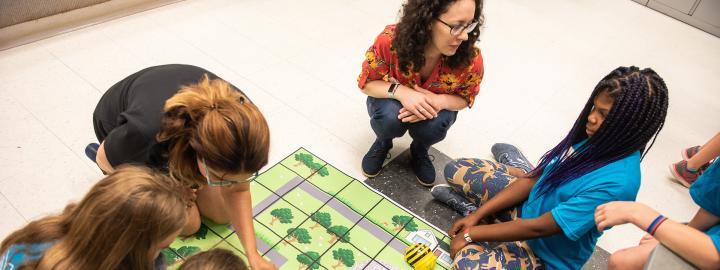
Teacher Education Programs
It takes a well-trained teacher to make a positive impact on students.
Looking for the knowledge and expertise that will build the foundation for a fulfilling career? Teacher education is your place to start.

B.S.Ed. in Early Childhood Education (Nonlicensure, Birth–Age 5)
Discover the way children learn and develop the skills to help teach them. Your influence could lead them toward a lifetime of seeking fulfilling knowledge.

Program
Highlights
Program Highlights
- A program accredited by the Council for the Accreditation of Educator Preparation
- A rigorous curriculum
- Support from the entire Mastodon community
- Student-teaching opportunities beyond northeast Indiana
- A prestigious Purdue degree
Accreditation
The School of Education is accredited through CAEP (Council for the Accreditation of Educator Preparation).

Scholarships
Looking for ways to make paying for college a little easier? ScholarshipUniverse is a tool for current and admitted Purdue Fort Wayne students that allows you to create an academic profile and connect with scholarship opportunities.
For more information about all the scholarships available at Purdue Fort Wayne—including opportunities for specific programs—you can visit the Office of Financial Aid or contact us at [email protected].
Student Learning Outcomes
Upon completion of this degree, students will be able to demonstrate the following learning outcomes:
- Understand child development, the multiple influences on it, and how to use this information to create challenging learning environments
- Create and value reciprocal relationships with children’s families and community members to support children
- Use child observation, documentation, and other forms of assessment in responsible ways to positively influence the development of every child
- Know, understand, and use a wide array of developmentally appropriate approaches, instructional strategies, and tools to facilitate development and learning
- Use knowledge of academic disciplines to design, implement, and evaluate experiences that promote positive development and learning for every young child
- Demonstrate being a member of the early-childhood profession who uses ethical guidelines and professional standards, is a continuous and collaborative learner, reflects on practice, and is an informed advocate
- Coach
- Curriculum Designer
- Educator (informal)
- Interventionist
- School Administrator
- School Counselor
- School Librarian
- Teacher












